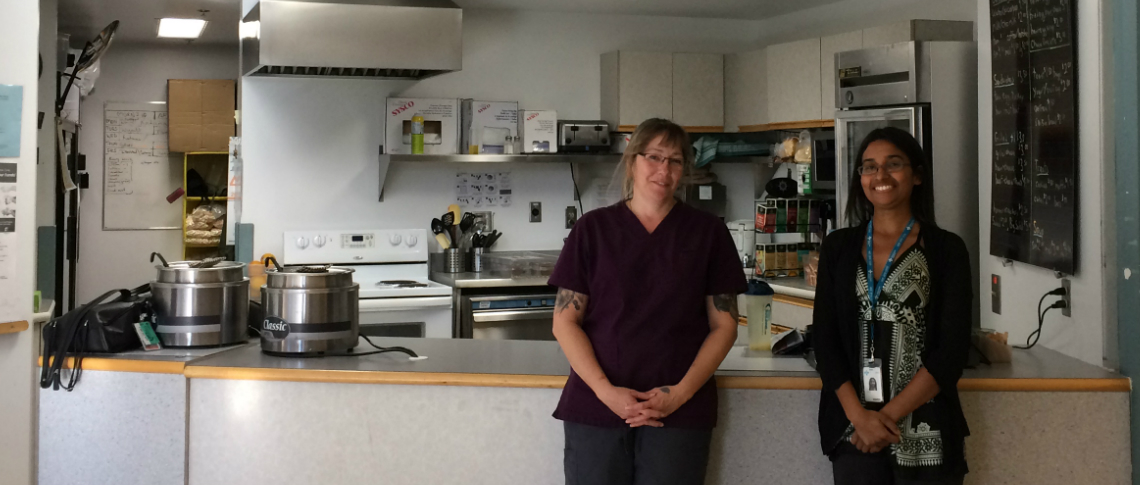

Therapy Assistant Linda Voyageur (left) and Occupational Therapist Indra Perry (right)
Story by Laura Manuel
Many people are affected by mental health issues and addictions. This can make it hard to think clearly, manage how you feel, be with others and manage stress.
That was the case for Susan Cox who was forced to withdraw from university in her twenties after a bi-polar disorder diagnosis.
Occupational therapist Indra Perry recalls Cox’s story of perseverance.
“She experienced so many barriers,” says Perry, who worked with Cox. “From adjusting and readjusting medications to managing diabetes to coping with her financial situation.”
Perry is part of a multi-disciplinary team within Edmonton’s community-based, Recovery Supports Program. She works in collaboration with employment specialists, recreation therapists, peer support workers, mental health therapists and psychiatrists to help clients with addiction and mental health issues.
“I work with clients to identify their needs and assess their goals,” says Perry. “We look at a variety of things…their strengths, cognition, social supports, symptoms, sleep and nutrition, what happened before, understanding barriers as well as past and current periods of success.”
Following the occupational therapy assessment, Perry and the mental health care team identify routines, processes or tools that can help clients get back on track. This can include support with work, education, volunteering, wellness or mental health management. The team might recommend mobile apps that help clients develop healthy routines, or connect them with peer support or yoga classes to help reduce stress. Sometimes, the team connects clients with practical assistance like connection to housing or financial resources.
Working with 25-30 clients at a time, Perry often sees people over a long period of time.
“Clients don’t get discharged until they are ready,” says Perry. “Support is needed through times of change…transitions are difficult.”
One of Cox’s goals was to return to university. In order to do so, she had to rely entirely on grants and scholarships and take post-secondary courses on a reduced course load.
“Clients often need graded activities to support success in working towards their goals,” explains Perry.
Graded activities help clients adjust or learn skills in a supportive environment. Perry recommends a variety of graded activities to her clients in her OT role. For example, some clients access Edmonton’s Highwood School which offers modified programming so students can earn their high school diploma or upgrade courses. Edmonton’s Tasty Budzzz coffee shop is a supported employment program that helps clients gain job experience.
“Tasty Budzzz coffee shop helps people develop or relearn job skills,” explains Perry. “For example, they learn how to interact with customers, follow instructions and use a cash register.”
Today, Cox is an honours university student, regularly qualifies for grants and scholarships and contributes by volunteering with at-risk youth.
“The path to manage addiction and mental health is not linear,” says Perry. “A person might get support in one way and then come back for more tips.”
“Mental health affects all of us. The impact of positive supports is so important and can make the difference to help a person to get their life back.”
Alberta Health Services is celebrating Occupational Therapy Month from October 1-31, 2017.